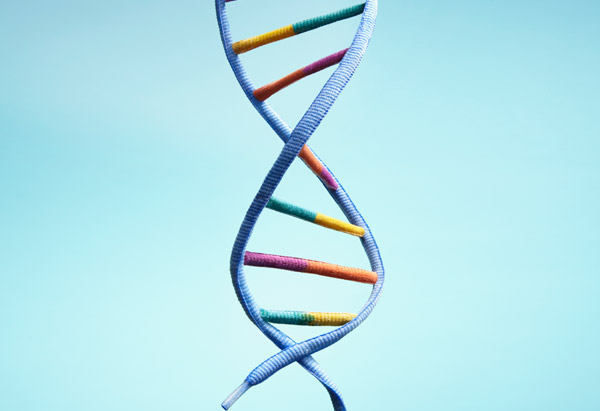The Breakthrough That Will Change the Way You Age
Fifteen minutes with a scientist who's unlocking the secrets to better aging.

Photo: Mauricio Alejo
Elizabeth H. Blackburn, PhD, won the world's attention—and a 2009 Nobel Prize—for her research on a tiny bit of cellular machinery that turns out to be a hugely important clue to human health: telomeres, the protective caps on the ends of our threadlike chromosomes ("similar to the plastic tips on shoelaces") that keep our genetic material safe from damage. Every time a cell divides, as our immune and skin cells regularly do, the telomeres tend to get a little shorter—which makes them an excellent indicator of cellular aging. When telomeres get too short, cells stop working properly. But that's not the whole puzzle: Blackburn and one of her colleagues discovered an enzyme that replenishes and repairs frayed telomeres, helping us stay healthier as we get older. O asked Blackburn for an update on her work.
Q: An enzyme that can turn back the hands of time—really?
This enzyme, called telomerase, slows the rate at which telomeres degrade, and research indicates that healthy people with longer telomeres have less risk of developing the common illnesses of aging—like heart disease, diabetes, and cancer, which are three big killers today. But telomerase is a double-edged sword, because it has the potential to fuel the growth of any cancer cells already lurking in the body. So we wouldn't want to just wantonly dial up a person's levels. Instead, we're studying the habits of people who have longer telomeres. We think there are lifestyle factors that boost telomerase naturally.
Q: Tell us more.
A diet high in omega-3 fatty acids is one of the clearest examples. Exercise is another key. Research consistently shows that.
Q: How much exercise?
Enough to make you break a sweat. Exercise mitigates the effects of stress—and stress, we know, shortens telomeres. In fact, early studies indicate that stress reduction techniques like meditation help people maintain the length of their telomeres. The studies are small, but they all point in the same direction.
Q: How have you changed your lifestyle since learning all this?
I'm pretty good about getting some exercise every day—well, most days. The secret for me was to put the elliptical in front of the TV.
Q: You started a company that offers telomere testing. But there's controversy around the usefulness of the results. Why?
The test isn't a crystal ball: It's not going to tell you how long you'll live. It's a rough indicator of your risk of developing age-related diseases based on statistics. The information helps your doctor build a picture of your health. Say, for example, someone had very, very short telomeres; her doctor might say, "Wow, let's take a closer look, because you could have an underlying condition that's treatable now."
Q: What's up next for your team?
We joined other researchers to compare the telomeres of 100,000 subjects with their health and genetic variability across the genome. So we'll get more good clues as we crunch that data.
More on Anti-Aging
Q: An enzyme that can turn back the hands of time—really?
This enzyme, called telomerase, slows the rate at which telomeres degrade, and research indicates that healthy people with longer telomeres have less risk of developing the common illnesses of aging—like heart disease, diabetes, and cancer, which are three big killers today. But telomerase is a double-edged sword, because it has the potential to fuel the growth of any cancer cells already lurking in the body. So we wouldn't want to just wantonly dial up a person's levels. Instead, we're studying the habits of people who have longer telomeres. We think there are lifestyle factors that boost telomerase naturally.
Q: Tell us more.
A diet high in omega-3 fatty acids is one of the clearest examples. Exercise is another key. Research consistently shows that.
Q: How much exercise?
Enough to make you break a sweat. Exercise mitigates the effects of stress—and stress, we know, shortens telomeres. In fact, early studies indicate that stress reduction techniques like meditation help people maintain the length of their telomeres. The studies are small, but they all point in the same direction.
Q: How have you changed your lifestyle since learning all this?
I'm pretty good about getting some exercise every day—well, most days. The secret for me was to put the elliptical in front of the TV.
Q: You started a company that offers telomere testing. But there's controversy around the usefulness of the results. Why?
The test isn't a crystal ball: It's not going to tell you how long you'll live. It's a rough indicator of your risk of developing age-related diseases based on statistics. The information helps your doctor build a picture of your health. Say, for example, someone had very, very short telomeres; her doctor might say, "Wow, let's take a closer look, because you could have an underlying condition that's treatable now."
Q: What's up next for your team?
We joined other researchers to compare the telomeres of 100,000 subjects with their health and genetic variability across the genome. So we'll get more good clues as we crunch that data.
More on Anti-Aging



